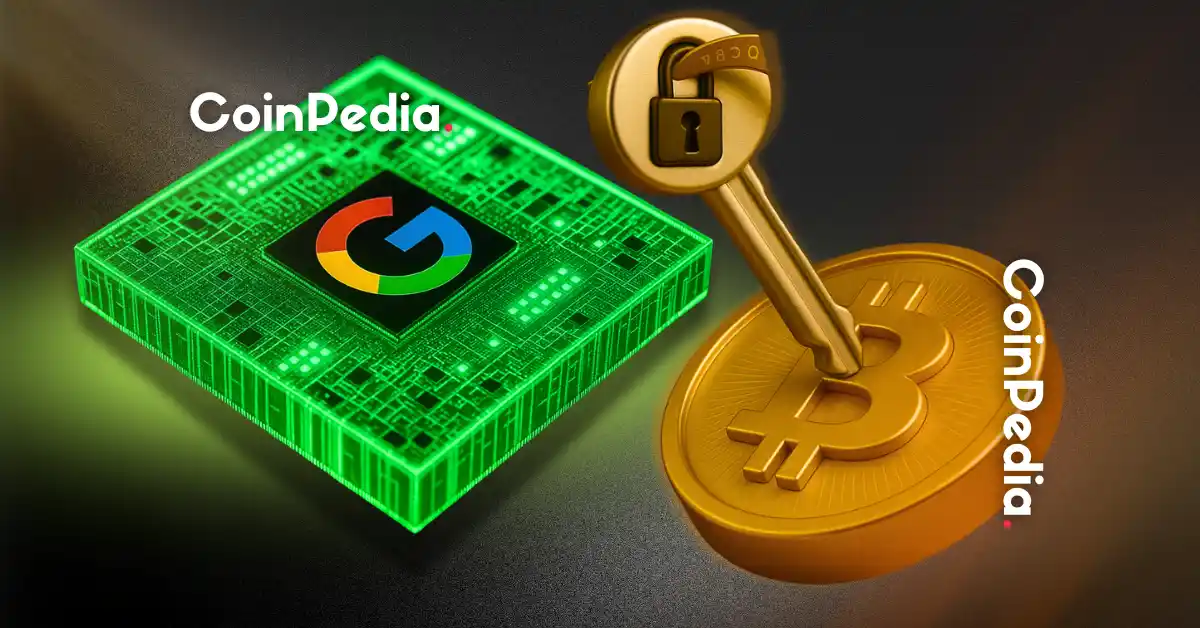
Every time quantum computing advances, one question echoes across the crypto world: Is Bitcoin still secure?
Google’s latest announcement has reignited that fear.
The tech giant revealed a major leap in quantum capabilities, slashing the number of qubits needed to break RSA encryption from 20 million to just 1 million. That’s a massive jump, and it has sparked urgent debate about the future safety of Bitcoin’s cryptographic foundation.
Quantum computing is no longer theoretical. Using principles like superposition and entanglement, these machines can process data in ways traditional computers can’t.
Today’s quantum computers can operate with over 100 qubits, and advancements in error correction are making them increasingly stable and practical. The field is accelerating, and with it comes a looming concern: Can this tech break encryption standards like RSA—and eventually Bitcoin’s?
Bitcoin doesn’t use RSA. Instead, it relies on ECDSA and increasingly, Schnorr signatures, for cryptographic security.
These offer multiple advantages:
But here’s the catch: According to a new report by the New York Digital Investment Group (NYDIG), these systems are not immune. As quantum computing progresses, even Bitcoin’s current cryptography may become vulnerable.
RSA encryption is widely used and considered secure because it relies on the difficulty of factoring large numbers. That security was challenged in 1994 when Peter Shor introduced an algorithm capable of cracking RSA, if run on a sufficiently powerful quantum computer.
Back then, such a machine didn’t exist. Today, we’re getting closer. With Google’s quantum milestone, that theoretical threat is beginning to look like a real-world problem.
For now, yes.
Bitcoin’s current cryptographic protections are strong enough against both classical and existing quantum computers.
But the landscape is changing:
The clock is ticking. Bitcoin may be safe today—but without upgrades, that may not hold true in the next decade.
There is ongoing work in the field of Post-Quantum Cryptography (PQC)—algorithms specifically designed to resist quantum attacks.
But NYDIG’s report highlights some challenges:
This means that integrating PQC into Bitcoin is possible, but not without trade-offs in speed, efficiency, and scalability.
Bitcoin is not under threat today, but complacency is not an option. The takeaway from NYDIG and Google’s announcement is clear: the crypto industry must act now to ensure long-term security.
Whether that means adopting post-quantum cryptographic standards or developing new protocols, the future of decentralized finance may depend on it.
Google Quantum AI explores quantum computing, which uses quantum mechanics (like superposition) to solve problems classical computers can’t. They aim to build large-scale, error-corrected quantum computers for various applications.
Yes, Bitcoin’s current cryptography (ECDSA, Schnorr signatures) is secure against existing classical and quantum computers. However, rapid advancements mean future vulnerability is possible.
Google’s reduction of qubits needed to break RSA (from 20M to 1M) highlights the accelerating threat. While Bitcoin doesn’t use RSA, similar algorithms like ECDSA could eventually be at risk.
Analyst Benjamin Cowen has a blunt explanation for the brutal altcoin crash shaking the market:…
Bitmine Immersion Technologies shareholders have now accumulated approximately $8.8 billion in paper losses on Ethereum,…
XRP is once again making headlines. After briefly rallying to $1.46 over the weekend, the…
The Ethereum price has bounced back above $1,900 after a sharp drop, but the bigger…
Michael Saylor’s company "Strategy" continues its aggressive Bitcoin acquisition, adding 592 BTC for around 39.8…
While major cryptocurrencies struggle under renewed selling pressure, Toncoin is showing relative strength. The token…